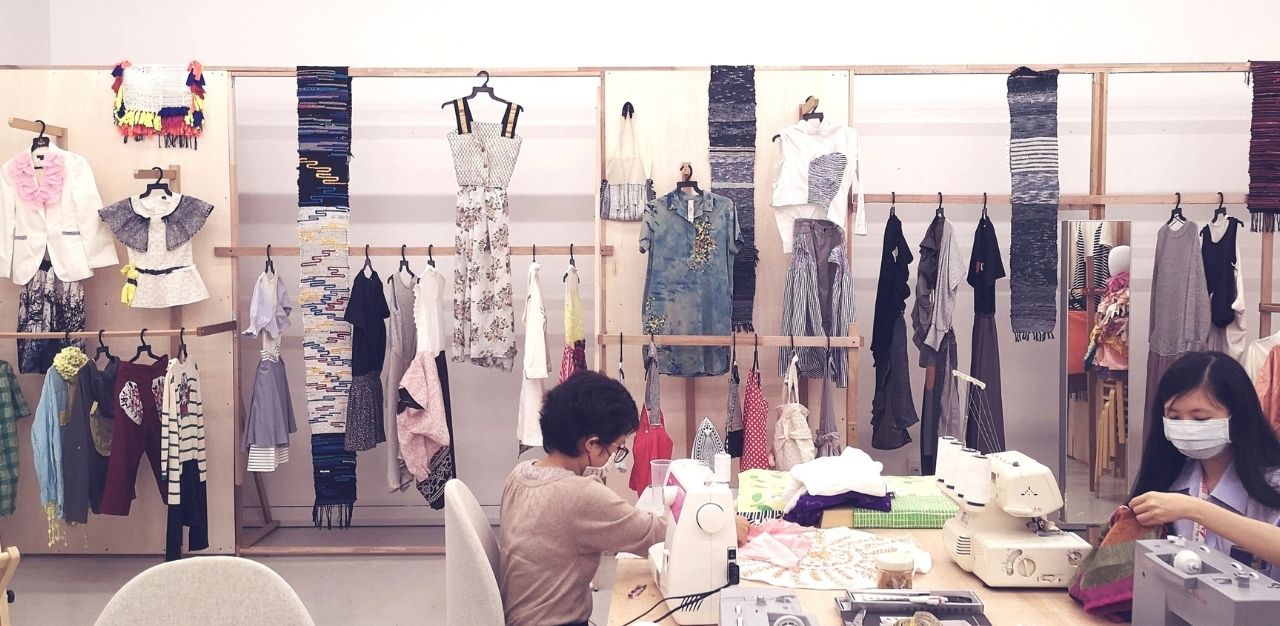From May to August 2021, independent cultural and social space Post-Museum is organising the Renew Earth Sweat Shop for the second year running. Supported by Temasek Shophouse, they hope to bring together 50 participants to create over 60 items that reimagine the future of fashion, carry the message of fashion sustainability, and change the way people see fashion waste. TheHomeGround Asia sits in on their first ideation workshop on 8 May to get the lowdown on the inception of their programme, in anticipation of the four months ahead.
Making produce bags out of waste fabric; using embroidery to refresh and upcycle used clothing; using origami techniques on clothing to craft beautiful patterns – these were some of the many ideas bandied about during the Fashion Repair Ideation Workshop held by Post-Museum as part of Renew Earth Sweat Shop.
Amid phase two restrictions that saw the workshop make a last-minute switch online, some 20 participants gathered on Zoom to kickstart the project’s first of four ideation workshops. Over two hours, they brainstormed ideas that they aim to realise in the four-month programme.
Renew Earth Sweat Shop is an outcry against traditional sweatshops that have long been associated with waste, unethical labour practices, and environmental damage. Instead, it hopes to ‘reverse’ sweatshops – “to become what a sweatshop is not, to counter waste, to rethink labour and ultimately to renew our Earth.”
It is the brainchild of Post-Museum, which was founded in 2007 by husband and wife team artist-curator Woon Tien Wei and artist-activist Jennifer Teo, as an independent cultural and social enterprise that aims to “encourage and support a thinking, caring and pro-active community” in Singapore. Over the years, the collective has organised various grassroots projects, including the Bukit Brown Index and the Singapore Really Really Free Market (SRRFM).
Launched for the first time last year, Renew Earth Sweat Shop’s inaugural edition saw more than 100 participants gather in groups of five or eight at a time to sew and learn, as well as to contemplate what the organisers have described as “the ripples our everyday actions have had on a planet that is increasingly more fragile.”
This year, creativity will intersect with “design innovation, craftsmanship, local manufacturing and youth empowerment.”
Whatever ideas participants of Renew Earth Sweat Shop conceive, Post-Museum will do its best to transform into reality, says Mr Woon, who is also co-Artistic Director of The Substation.
“The project doesn’t have a box,” he explains. “We didn’t frame [it] in a way [such that they all] come up with one solution. We were interested in providing the platform where they can do anything they want, and we’re here to enable it, as much as we technically or possibly can with our limited resources.”
Between May and end-July, youths, talents from the first edition of Renew Earth Sweat Shop and other self-initiated communities have been invited to work on a “viable clothes repair programme” and reusable mask innovations, using tools like embroidery machines, laser-cutting and 3D-printing solutions. The programme will culminate in August with a showcase of all the designs at Temasek Shophouse.
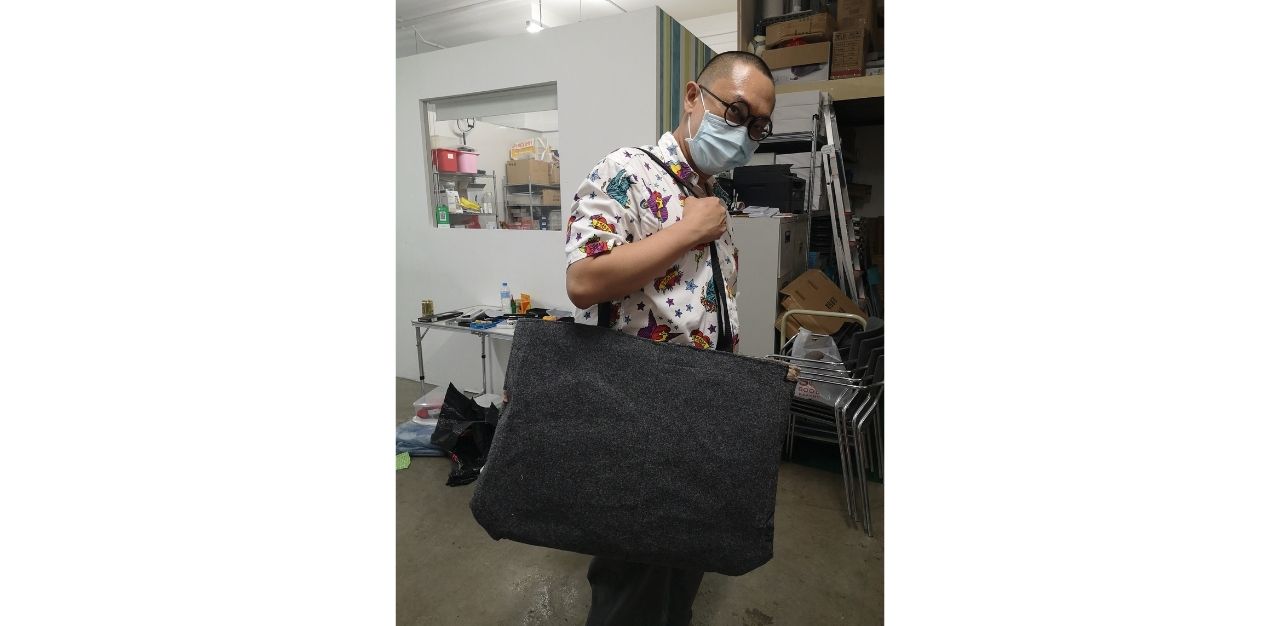
How the Sweat Shop started, and how it is going
Renew Earth Sweat Shop was born out of a desire to explore ways to reduce the amount of fashion waste generated, after Post-Museum witnessed first-hand the amount of waste left behind at its free market, or SRRFM, event.
SRRFM is a flea market where everything is, well, free. ‘Merchants’ offer whatever goods and services they have gratis, and take whatever they need, no questions asked.
“But at the end of every free market, we’ll be left with so much extra stuff, and we will have to figure out what to donate, and what to put in the recycling bin,” shares Veronyka Lau, a Renew Earth Sweat Shop organiser. “It brought home the real problem; that even if we tried to do something like this [the SRRFM], you end up with a lot of trash.”
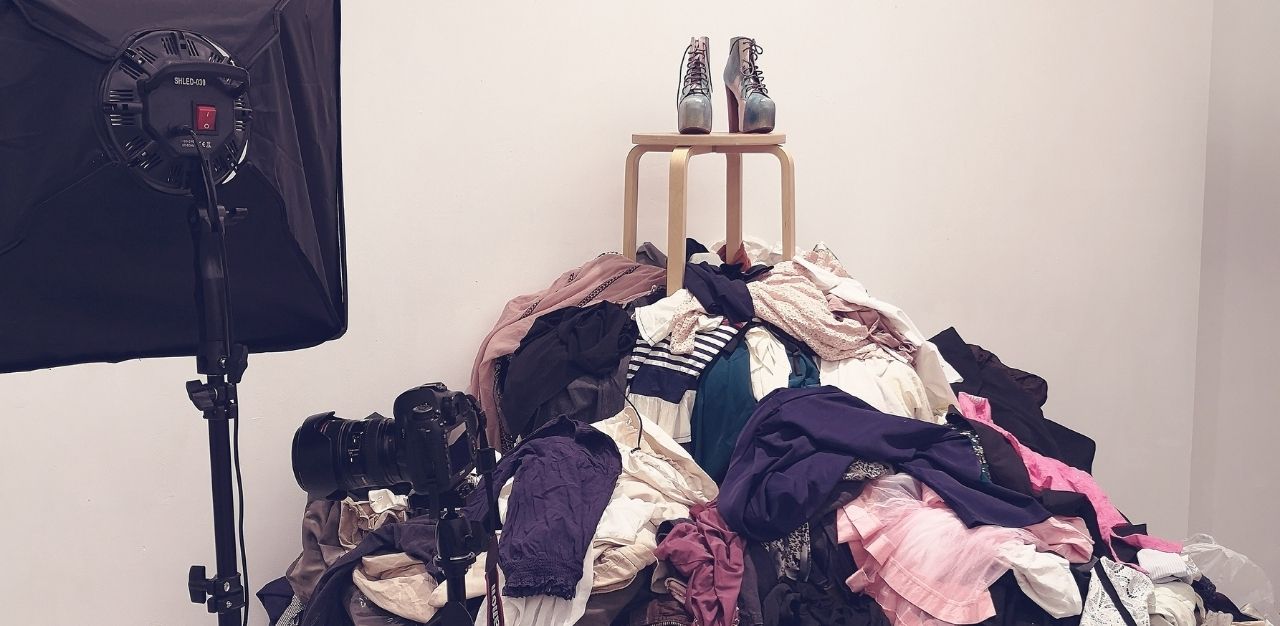
“We thought, ‘Wow, how can we make use of that?’,” chimes in Mr Woon.
“It has a lot to do with the idea of waste and all the excesses in society. It’s a global problem that is actually very difficult to solve,” he adds. “If we acknowledge it’s very complicated, what can we do through a project to discover our role in this?”
He explains that Renew Earth Sweat Shop is not intended to provide a solution, or to ask participants to come up with one. Instead, what they hope to focus on is the idea of ‘repair’, and how they can give otherwise discarded materials an extended life.
To support participants in their endeavours, the 2021 edition of Renew Earth Sweat Shop sees Post-Museum working with partners like MakeIT and The Fab Lab to provide additional tools and resources not traditionally used in garment manufacturing. For instance, participants will have access to use 3D-printing and laser-cutting solutions to bring their ideas to the next level.
While last year’s programme was an introduction of sorts, Ms Lau and Mr Woon are eager to push this year’s participants further in their exploration of ideas.
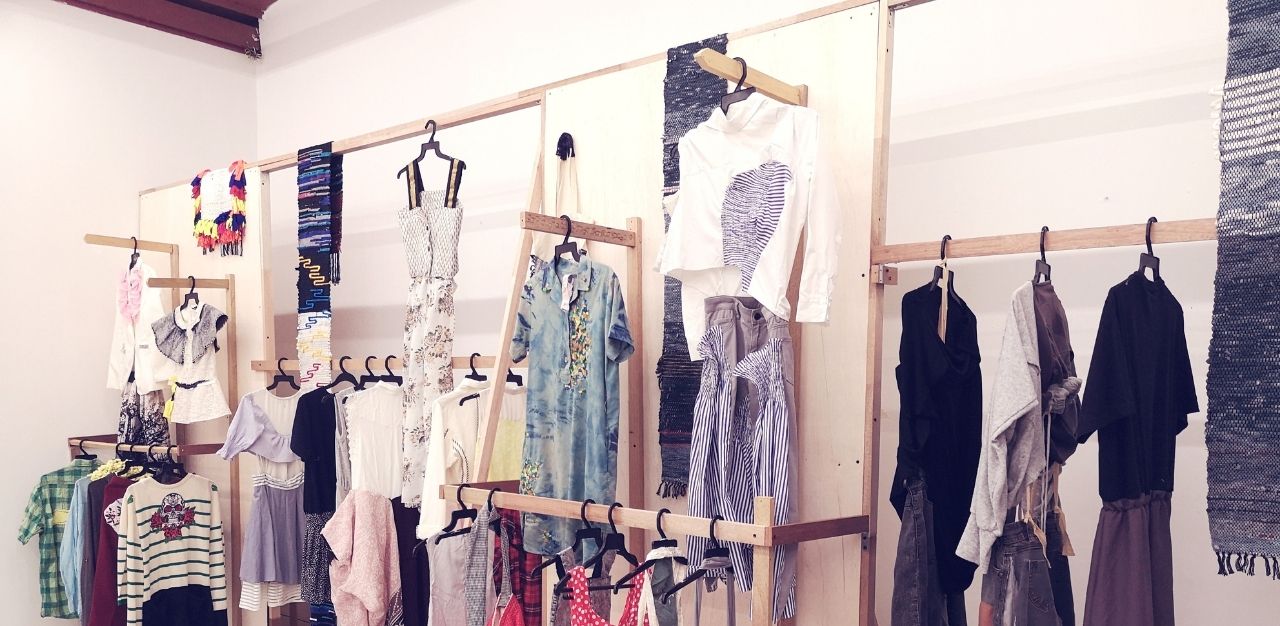
“Last edition, [the idea was] really just to make something,” says Mr Woon. “This edition, we’re saying, [make] something that you think can really help shift the problem and ourselves towards a better solution in the long run.”
In other words, upcycling fashion waste into items that can be recirculated into society.
He elaborates, “Maybe it will be able to re-enter our society and be reused, extend its lifespan a bit longer. We’re really trying to get people to think about that in four months, and create something.”
The sewing of ideas
With more resources at her fingertips, Harini Ravichandran, a second-time Sweat Shop participant, has much to look forward to , especially after an overwhelmingly positive experience last year: “I was encouraged that this [the programme] turned out to be some kind of repair café, at least to me, so I thought I should definitely go back to learn and pick up more skills.”
She adds, “I enjoyed the community sewing experience, and I had a lot of nice discussions last [time] round, so there was more than one reason for me to go back.”
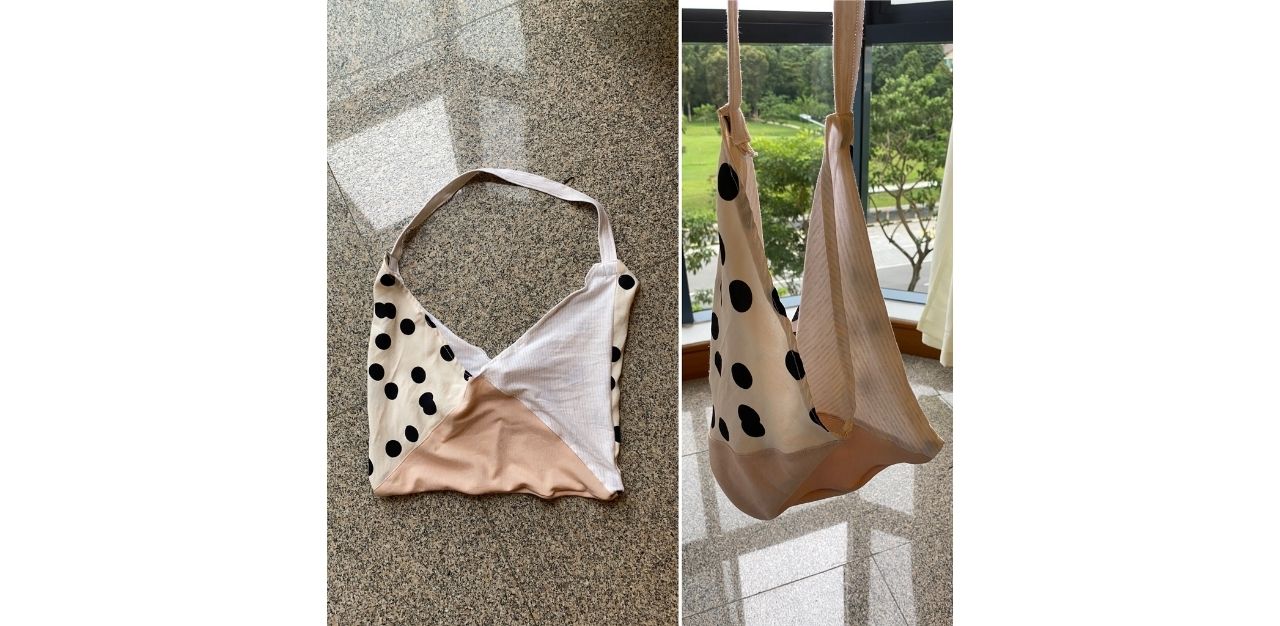
Last year, Ms Ravichandran had created a face mask and bags out of apparel items that would otherwise have been discarded, granting them a second lease of life. Further, in a bid to eliminate any wasteful by-products, she had considered making plush toys out of the scrap fabric she was left with, by using them as stuffing for the toys.
This year, she hopes to continue honing her sewing skills, and making more “small, everyday items” for herself.
“I want to make produce bags that I can substitute for plastic in the supermarkets, that’s one way of using a form of waste to also reduce my plastic waste,” she shares. “I do yoga, and I have a yoga mat at home, so I’d like to make a yoga mat holder.”
Ms Ravichandran is also looking forward to picking up more design skills with the equipment provided by MakeIT and The Fab Lab.
“I’ve never come across these before and I’m not quite sure how to use them,” she enthuses. “I’m hoping the workshop can guide me on what tools to use and what skills to learn to be able to make these things.”
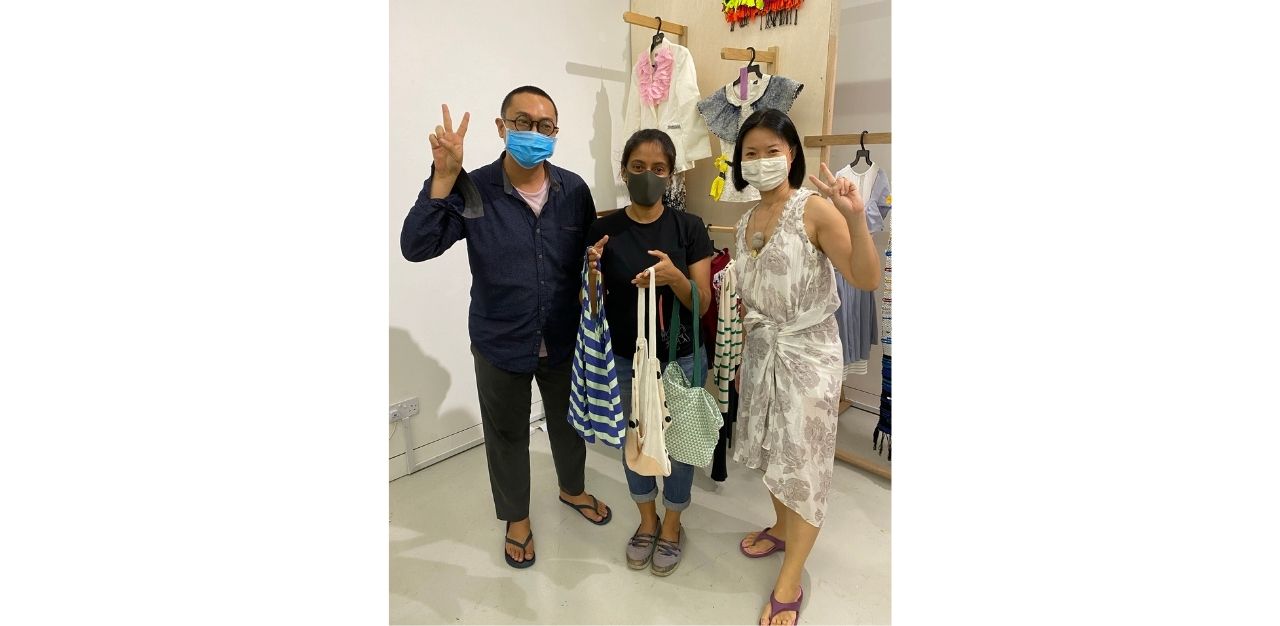
Other participants are also eager to level up their embroidery skills and add machine embroidery to their repertoire. While some hope to work with laser cutters and 3D printers to give materials like used denim a new lease of life in other forms, like bags.
Looking beyond product to process
Beyond an end product, Mr Woon was heartened to hear that in the workshop held on 8 May, participants were also thinking about the processes behind the fashion industry.
“There was an exploration of labour as well,” he says, referring to a group who had discussed involving youths-at-risk or elderly with dementia in the creation process to engage them in something productive.
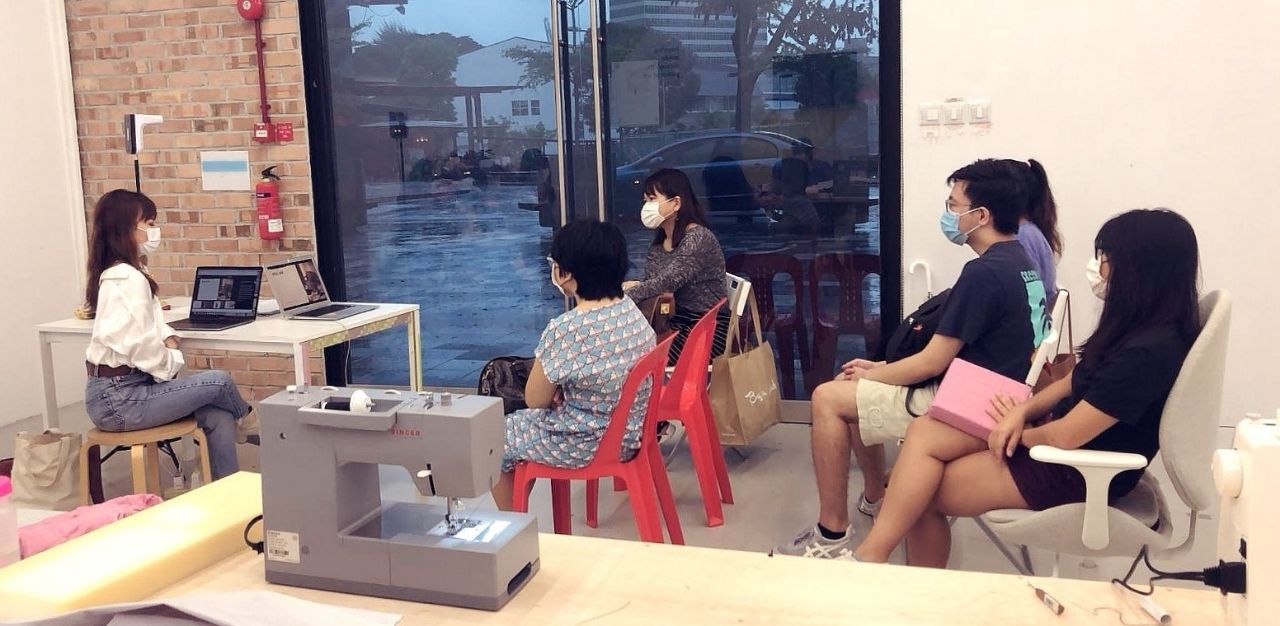
Even as participants consider the mechanics of the fashion industry, Renew Earth Sweat Shop’s organisers are also taking the participants’ journeys into account as they execute this programme.
Ultimately, Ms Lau explains, the project is designed to spark the initial brainstorming and learning process: “We want to emphasise that this is a learning journey, and the journey doesn’t stop here. We want to use this platform to empower people, impart skills, and hopefully… the ideas don’t stop flowing once the project ends.”
What’s next?
For the rest of May, the Post-Museum team are meeting with interested participants in three more ideation workshops, before they proceed to the production and prototyping phase in June and July. During these two months, participants can access materials and resources from Post-Museum and its partners, as they begin to develop the pieces they envision will catalyse change in the sustainable fashion industry.
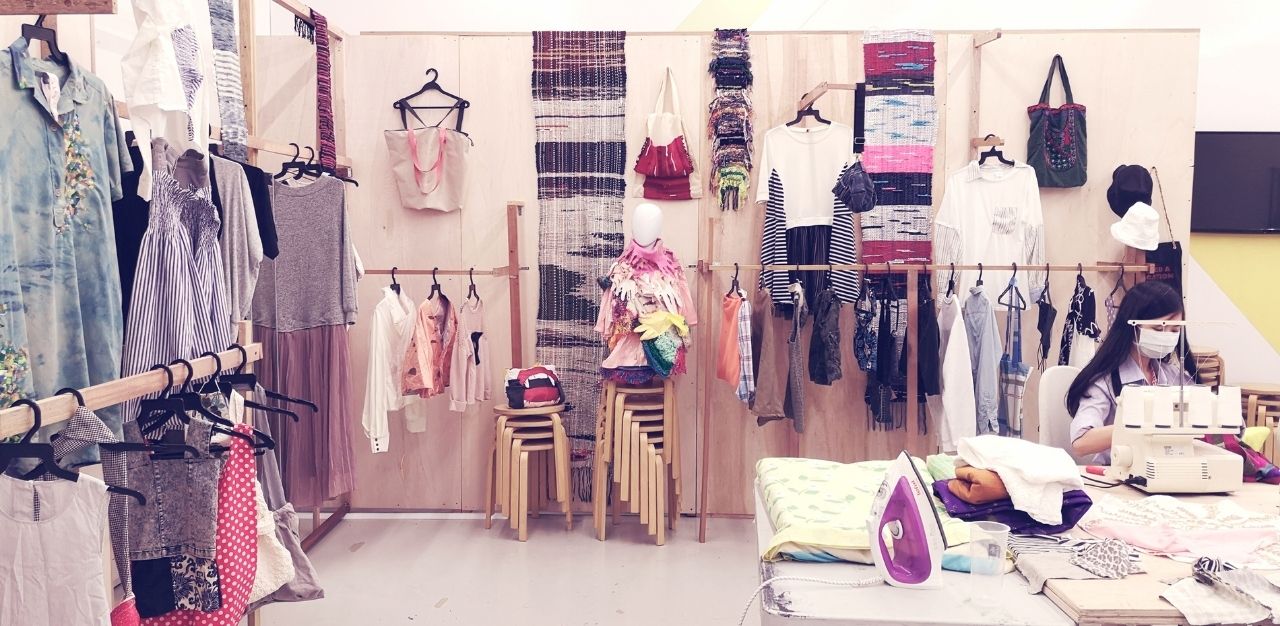
Finally, in August, a showcase at the Temasek Shophouse, where the public will be able to view participants’ upcycled pieces (if safe management measures allow).
Stay tuned as TheHomeGround Asia updates you on what participants have come up with, and their progress over the next few months.
Join the conversations on TheHomeGround Asia’s Facebook and Instagram, and get the latest updates via Telegram.
